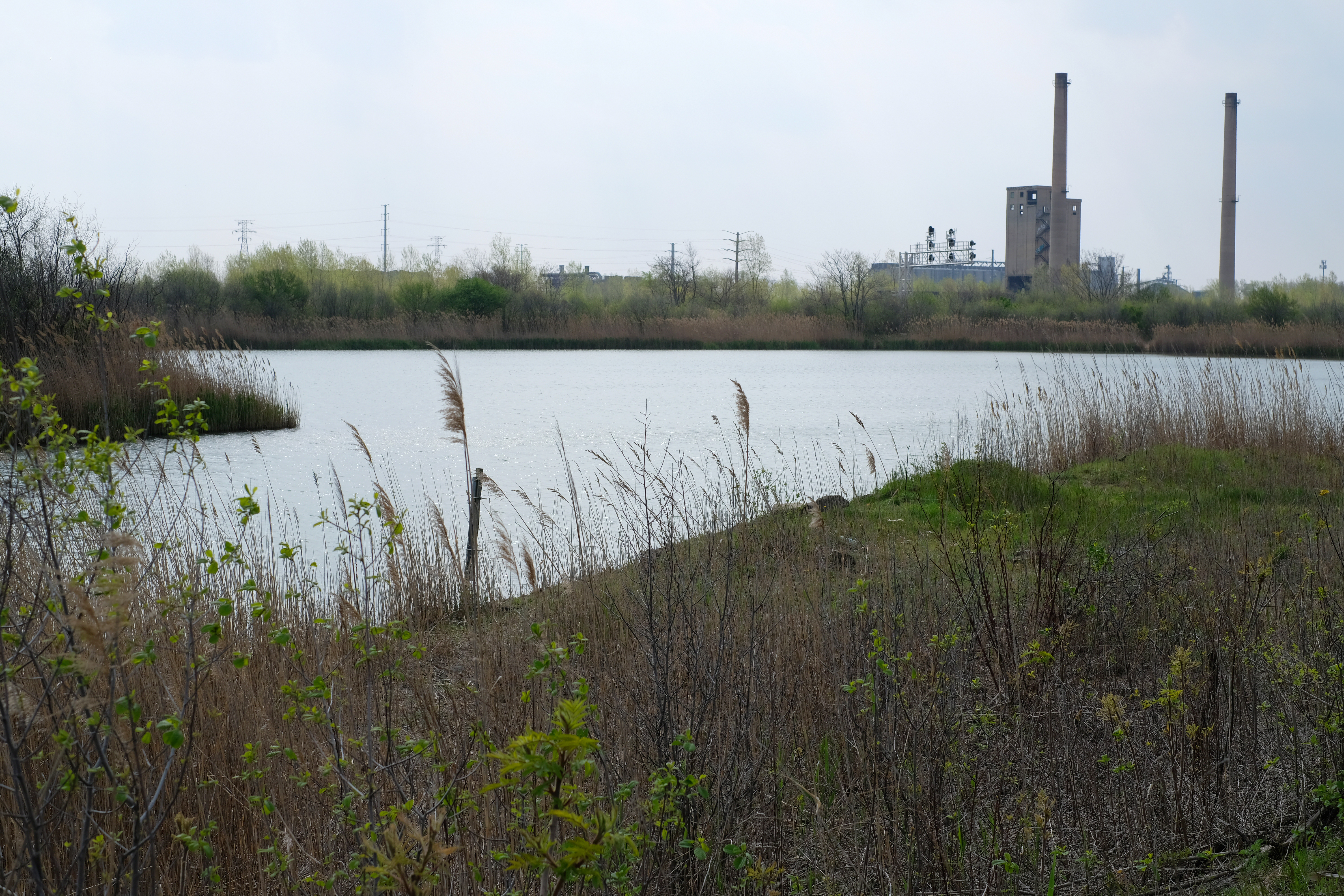Great Lakes Region PFAS Scoping and Competitive Research

Photo credit Irene Miles.
Per- and polyfluoroalkyl substances (PFAS) are a suite of more than 90 manufactured “forever chemicals” that are persistent in nature and toxic to many organisms. There are several angles to tackling this issue: for example, state and tribal agencies are monitoring for PFAS and related chemicals, and scientists are learning about their effects on environmental and human health. While it seems key for all to reduce their exposure to these chemicals, there are likely unknown challenges associated with any given at-risk group related to, for example, understanding the full extent of their risk, or remediating nearby contaminated sites. Through this initiative, Illinois-Indiana Sea Grant will lead a regional research effort to fill in key knowledge gaps related to social or economic impacts of PFAS exposure or remediation. Expected outputs from this work include a report from a regional scoping effort, a competitive request for research proposals, and support of four research projects.
Project Team
Sarah Zack, Pollution Prevention Specialist szack@illinois.edu
Carolyn Foley, Research Coordinator cfoley@purdue.edu
Project Timeline
This project is supported by a grant from the National Sea Grant Office and NOAA. Scoping activities took place in March 2023. A report detailing the results from the scoping sessions and a follow-up survey can be found here. The competitive research opportunity was open from May through July 2023. The Request for Proposals can be found here. The research projects supported with funding are listed in this announcement and below.
Fish consumption and knowledge of PFAS among communities of color in the Lake Michigan region
PI: Susan Buchanan, University of Illinois Chicago
Comparative analysis of state regulation of PFAS in the Great Lakes and Lake Champlain regions
PI: Stephanie Otts, National Sea Grant Law Center
Fostering efficacy and understanding in communicating the threat of PFAS and actions for PFAS risk reduction
PI: Lyn van Swol, University of Wisconsin Madison
From Awareness to Action: Assessing PFAS exposure in communities and evaluating the effectiveness of its mitigation strategies
PI: Ruohao Zhang, Pennsylvania State University
Goals and Mission
While the degree of risk, key routes of exposure, and ultimate impacts of PFAS are being investigated, several other important questions remain understudied. The Great Lakes regional research competition will focus on some of these questions, specifically focusing on social and economic issues related to PFAS risk, exposure, and remediation. Through this work, the Great Lakes region can serve as a national and international model for integrating previous and ongoing knowledge of PFAS presence and toxicology with an understanding of social and economic challenges.
Illinois-Indiana Sea Grant will be supported in this work by state and tribal agencies plus partners from other Great Lakes Sea Grant programs. The IISG project team will lead scoping activities and develop a report to inform a request for research proposals (RFP); will administer the RFP; and will facilitate the reporting of research results. The team expects to highlight environmental justice issues throughout the process, and the research results will be shared across the Great Lakes region and beyond. Overall, this effort is expected to inform long-term PFAS mitigation plans generated by local, state, and tribal agencies.
Advisory Committee
Abigail Hendershott Michigan PFAS Action Response Team
Brian Koch Illinois Department of Public Health, Division of Environmental Health
Pamela Hadad Hurst New York State Department of Environmental Conservation
Gary Ankley US EPA Great Lakes Toxicology and Ecology Division
Gavin Dehnert Wisconsin Sea Grant
Luke Loken USGS Upper Midwest Water Science Center
Noah Saperstein Red Cliff Band of Lake Superior Chippewa
Summer Streets Minnesota Pollution Control Agency
Related Links
- IISG PFAS Scoping Session Report
- IISG Request for Research Proposals – Social and Economic Impacts of PFAS in the Great Lakes and Lake Champlain Regions
- Announcement of Research Projects Recommended for Funding
- PFAS | Illinois EPA
- PFAS | US EPA
- Center for PFAS Research Events | MSU
- Sea Grant Advances Investigation of Contaminants of Emerging Concern
- Sea Grant Contaminants of Emerging Concern: Initial National Framework
